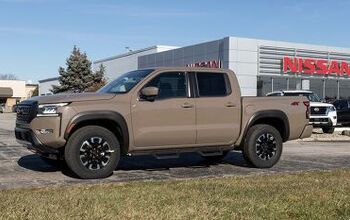NAFTA Abolishment Looms Less Large as Trade Posturing Subsides Between U.S. and Mexico

Now that Mexican negotiators aren’t reacting specifically to President Trump’s heated rhetoric over foreign trade policies, their terror and rage has begun to subside. The North American Free Trade Agreement might even continue to exist for the time being.
Trump’s previous attacks on NAFTA, import tariff threats, and promise of a border wall incensed Mexican officials to a point where many suggested Mexico should simply abandon the renegotiation talks on principle. However, now that cabinet officials will be speaking on behalf of the president and the focus of the negotiators have shifted toward the fundamentals — and not the politics — Mexico can relax a little.
Despite some initial arm-folding and anger over immigration and border policing, Mexican Foreign Minister Luis Videgaray has remained engaged with the White House throughout the hostilities. The same cannot be said for Mexico’s Economy Minister and chief trade negotiator Ildefonso Guajardo. He has repeatedly said that he would immediately withdraw from talks if the United States made any attempt to add tariffs.
Recently, Guajardo has taken a more optimistic approach to the possibility of a modestly tweaked trilateral deal — even if the changes did favor North America somewhat.
However, it’s not just Mexico that’s softening its tone and making the situation appear less dire. Automotive News has cited market analysts noting a marked change in the U.S. trade prose over the last couple of weeks, especially now that cabinet officials such as Commerce Secretary Wilbur Ross are doing the talking instead of Trump.
“We find the change in tone between Ross’ comments and Trump’s campaign rhetoric striking,” said Benito Berber, senior Latin American strategist at Nomura Securities.
According to Berber, Ross seems more focused on improving NAFTA by tightening rules of origin and adding chapters on trade that favors the U.S. — especially in regard to tech, services, and energy. He also hasn’t mentioned taxing Mexico on imported items or a complete overhaul of the treaty.
For now, Mexican manufacturing is humming along and automotive industry leaders aren’t yet taking their current investments elsewhere. Future business is a different story, though. Numerous factories planned for Mexico have been cancelled and there is even more business waiting just out of frame to see how this NAFTA business goes down. The Trump administration can also decide to fiercely support Paul Ryan and his border tax adjustment proposals whenever it wants.
Still, it’s nice to have a break.
[Image: Jrsnchzhrs/ Flickr ( CC BY-ND 2.0)]

A staunch consumer advocate tracking industry trends and regulation. Before joining TTAC, Matt spent a decade working for marketing and research firms based in NYC. Clients included several of the world’s largest automakers, global tire brands, and aftermarket part suppliers. Dissatisfied with the corporate world and resentful of having to wear suits everyday, he pivoted to writing about cars. Since then, that man has become an ardent supporter of the right-to-repair movement, been interviewed on the auto industry by national radio broadcasts, driven more rental cars than anyone ever should, participated in amateur rallying events, and received the requisite minimum training as sanctioned by the SCCA. Handy with a wrench, Matt grew up surrounded by Detroit auto workers and managed to get a pizza delivery job before he was legally eligible. He later found himself driving box trucks through Manhattan, guaranteeing future sympathy for actual truckers. He continues to conduct research pertaining to the automotive sector as an independent contractor and has since moved back to his native Michigan, closer to where the cars are born. A contrarian, Matt claims to prefer understeer — stating that front and all-wheel drive vehicles cater best to his driving style.
More by Matt Posky
Latest Car Reviews
Read moreLatest Product Reviews
Read moreRecent Comments
- Kwik_Shift_Pro4X Mazda CX-5 all the way.
- Spookiness The Mazda interior really is nice. I recognize the rationale for the Mazda infotainment interface design in lieu of a touch screen, but the filthy masses have spoken. As with the rotary engine, it's time to move on. To sell more cars they'll need to have touchscreens. Other carmakers have evolved beyond the iPad-screwed-on-top-the-dash look, so I'm sure Mazda can come up with something aesthetically pleasing and user-friendly. (Another quibble: I really don't need or want AWD, so I wish it wasn't forced. But again, the masses have spoken.)
- Lou_BC “We are always listening to the customer. "You sayin' the baller/gangsta types don't want Escalades on 24's that don't make vroom vroom rumbly sounds?
- AZFelix I shall fully endorse the use of autonomous cars on public roads once they have successfully completed my proposed Turing test for self driving vehicles. This test requires the successful completion of an at fault incident and accident free 24/7 driving session in Buffalo and upstate New York from October 1st until March 31st, and throughout the city of Jakarta, Indonesia for one consecutive year. Only Level 1 and Level 5 vehicles are permissible.
- Lou_BC I'd go Rav4. No Mazda dealer in my town and from what I've seen, Mazda's tend to rust.


































Comments
Join the conversation
Point of order for the fourth paragraph: Mexico is part of North America. Unless your point is that free trade benefits all of North America generally, in which case this is probably correct.
This is quite brilliant move by Trump. Getting concessions, better trade conditions for the U.S. Current administrations trade/migration policies will also benefit Mexico, other Latin American countries by promoting better, fair trade, allowing to develop their economies, keeping their best and brightest home. This is what real leadership is! Get used to it.